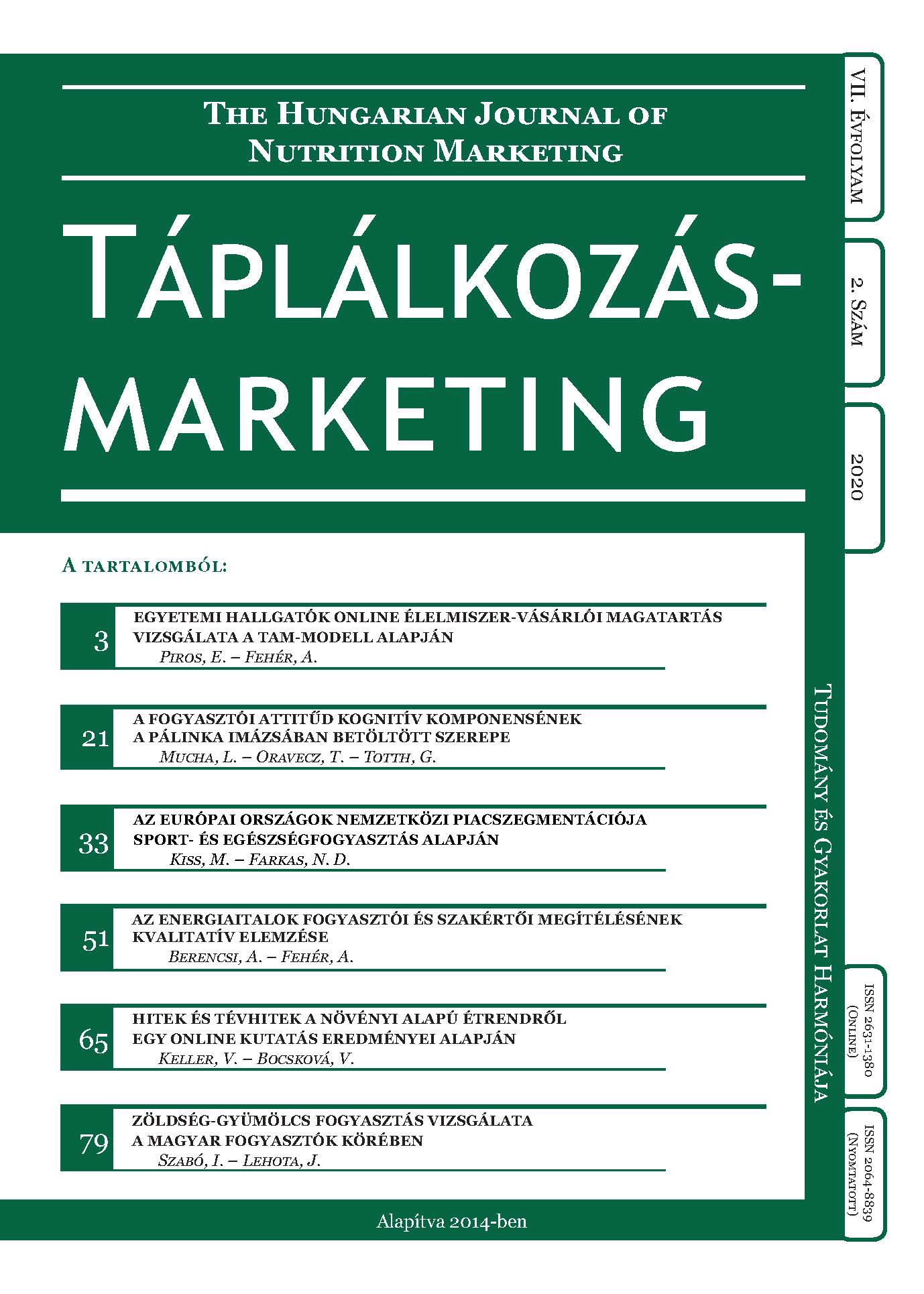The Role of the Cognitive Component of Consumer Attitude in the Image of the Pálinka
Authors
View
Keywords
License
Copyright (c) 2020 László Mucha, Titanilla Oravecz, Gedeon Totth

This work is licensed under a Creative Commons Attribution-NoDerivatives 4.0 International License.
How To Cite
Abstract
The research aim is to explore the potential role of consumer attitude components in image development related to a traditional Hungarian alcoholic beverage, the pálinka. This study focuses on the effect of the cognitive component of attitude on image of the pálinka. The relevance of this research is the expansion of the pálinka market in recent years and the changing of the regulatory environment about homemade spirits. Distillate made at home, which product improperly called homemade pálinka, is very popular in Hungary. Based on the qualitative studies, the most important characteristics in the consumer perception of alcoholic beverage are quality, price, prestige, fashion and origin. The importance of these attributes of the most popular alcoholic beverages in Hungary was assessed by the participants on Likert scales. Homemade spirit has the most favorable attitude and in-store pálinka has the most unfavorable attitude. To understand the effect of the cognitive component, we used two types of the multiattribute attitude model of Fishbein. By using a 7-point semantic differential scale, we could graphically illustrate the consumer belief about the homemade and in-store pálinka. Image profiles on the semantic differential scales show the differences in image of the analysed alcoholic beverages. The study confirmed the advantage of homemade spirit image over in-store pálinka, points out the importance of education and information in the case of the cognitive component of consumer attitude. The reconsidering of the marketing communication of the in-store pálinka producers is very important and urgent.
JEL Classification: M31


 https://doi.org/10.20494/TM/7/2/2
https://doi.org/10.20494/TM/7/2/2





